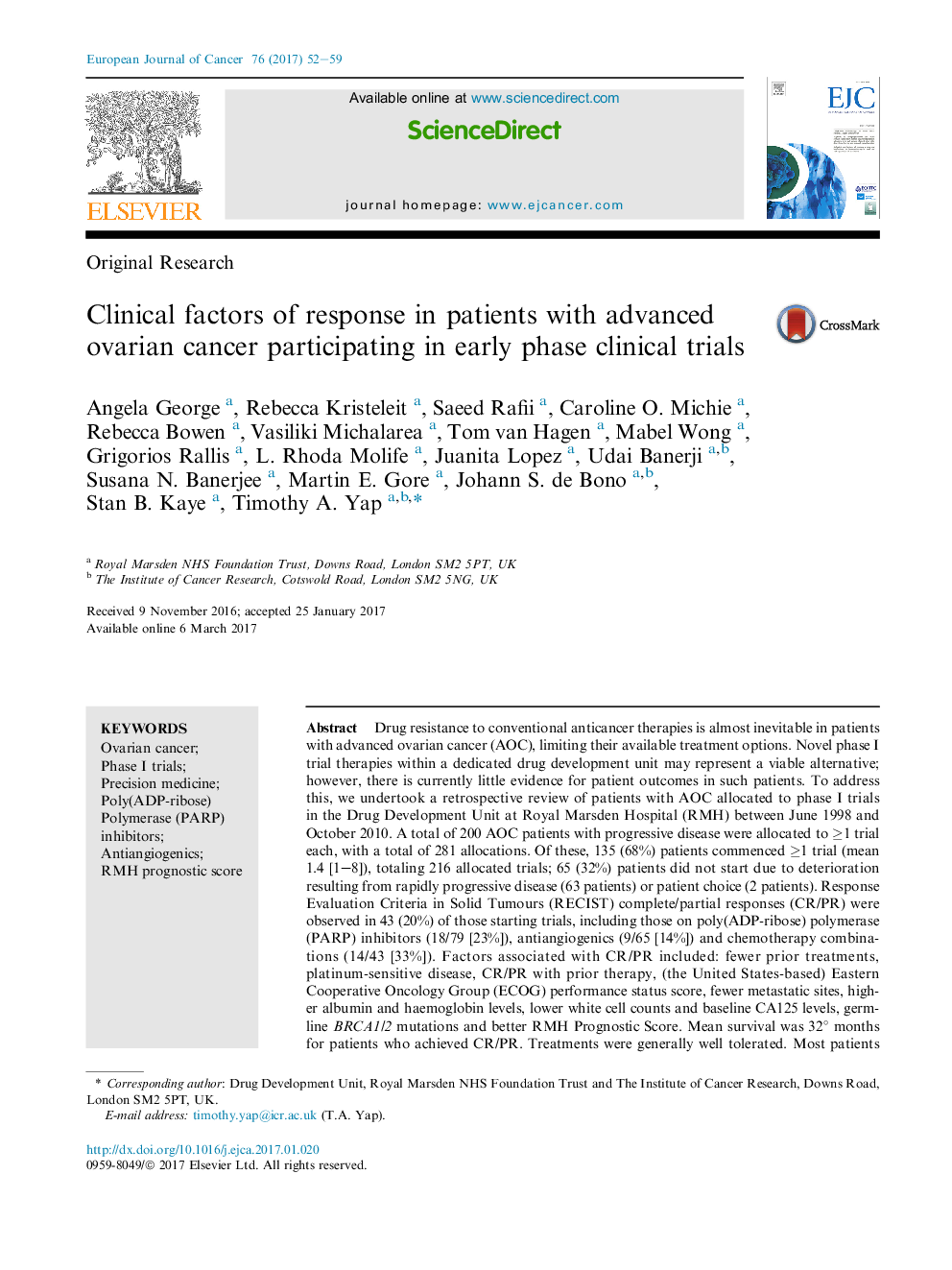| Article ID | Journal | Published Year | Pages | File Type |
|---|---|---|---|---|
| 5526337 | European Journal of Cancer | 2017 | 8 Pages |
â¢Phase I trials are a viable alternative for advanced ovarian cancer (AOC) patients.â¢Clinical factors associated with antitumour responses were identified.â¢Multiple patients went on to receive further therapies after phase I trials.â¢Phase I referrals should be considered earlier in the ovarian cancer pathway.
Drug resistance to conventional anticancer therapies is almost inevitable in patients with advanced ovarian cancer (AOC), limiting their available treatment options. Novel phase I trial therapies within a dedicated drug development unit may represent a viable alternative; however, there is currently little evidence for patient outcomes in such patients. To address this, we undertook a retrospective review of patients with AOC allocated to phase I trials in the Drug Development Unit at Royal Marsden Hospital (RMH) between June 1998 and October 2010. A total of 200 AOC patients with progressive disease were allocated to â¥1 trial each, with a total of 281 allocations. Of these, 135 (68%) patients commenced â¥1 trial (mean 1.4 [1-8]), totaling 216 allocated trials; 65 (32%) patients did not start due to deterioration resulting from rapidly progressive disease (63 patients) or patient choice (2 patients). Response Evaluation Criteria in Solid Tumours (RECIST) complete/partial responses (CR/PR) were observed in 43 (20%) of those starting trials, including those on poly(ADP-ribose) polymerase (PARP) inhibitors (18/79 [23%]), antiangiogenics (9/65 [14%]) and chemotherapy combinations (14/43 [33%]). Factors associated with CR/PR included: fewer prior treatments, platinum-sensitive disease, CR/PR with prior therapy, (the United States-based) Eastern Cooperative Oncology Group (ECOG) performance status score, fewer metastatic sites, higher albumin and haemoglobin levels, lower white cell counts and baseline CA125 levels, germline BRCA1/2 mutations and better RMH Prognostic Score. Mean survival was 32° months for patients who achieved CR/PR. Treatments were generally well tolerated. Most patients with AOC (134/200 [67%]) received â¥1 subsequent line of therapy after phase I trials. Our data suggest that phase I trial referrals should be considered earlier in the AOC treatment pathway and before the onset of rapid disease progression particularly with the emergence of promising novel agents in the era of precision medicine.
